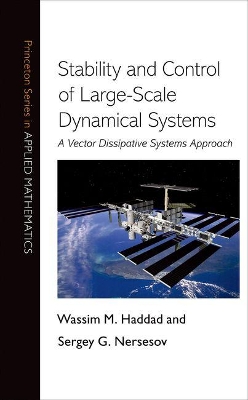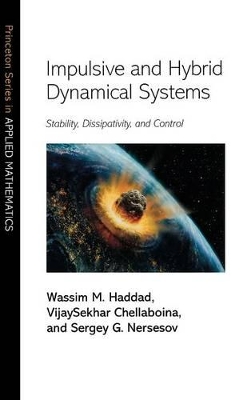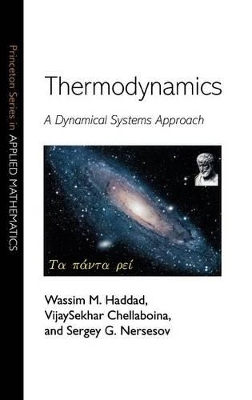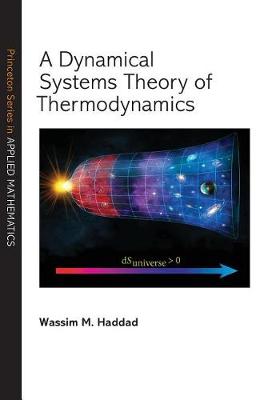Princeton Series in Applied Mathematics
5 total works
Thermodynamics: A Dynamical Systems Approach
by Wassim M Haddad, Vijaysekhar Chellaboina, and Sergey G Nersesov
Stability and Control of Large-Scale Dynamical Systems
by Wassim M Haddad and Sergey G Nersesov
It develops finite-time stability and finite-time decentralized stabilization, thermodynamic modeling, maximum entropy control, and energy-based decentralized control. This book will interest applied mathematicians, dynamical systems theorists, control theorists, and engineers, and anyone seeking a fundamental and comprehensive understanding of large-scale interconnected dynamical systems and control.
Impulsive and Hybrid Dynamical Systems
by Wassim M Haddad, Vijaysekhar Chellaboina, and Sergey G Nersesov
It is intended for graduate students, researchers, and practitioners of engineering and applied mathematics as well as computer scientists, physicists, and other scientists who seek a fundamental understanding of the rich dynamical behavior of impulsive and hybrid dynamical systems.
Thermodynamics
by Wassim M Haddad, Vijaysekhar Chellaboina, and Sergey G Nersesov
This book uses system theoretic ideas to bring coherence, clarity, and precision to an extremely important and poorly understood classical area of science.
A brand-new conceptual look at dynamical thermodynamics
This book merges the two universalisms of thermodynamics and dynamical systems theory in a single compendium, with the latter providing an ideal language for the former, to develop a new and unique framework for dynamical thermodynamics. In particular, the book uses system-theoretic ideas to bring coherence, clarity, and precision to an important and poorly understood classical area of science. The dynamical systems formalism captures all of the key aspects of thermodynamics, including its fundamental laws, while providing a mathematically rigorous formulation for thermodynamical systems out of equilibrium by unifying the theory of mechanics with that of classical thermodynamics.
This book includes topics on nonequilibrium irreversible thermodynamics, Boltzmann thermodynamics, mass-action kinetics and chemical reactions, finite-time thermodynamics, thermodynamic critical phenomena with continuous and discontinuous phase transitions, information theory, continuum and stochastic thermodynamics, and relativistic thermodynamics.
A Dynamical Systems Theory of Thermodynamics develops a postmodern theory of thermodynamics as part of mathematical dynamical systems theory. The book establishes a clear nexus between thermodynamic irreversibility, the second law of thermodynamics, and the arrow of time to further unify discreteness and continuity, indeterminism and determinism, and quantum mechanics and general relativity in the pursuit of understanding the most fundamental property of the universe-the entropic arrow of time.




